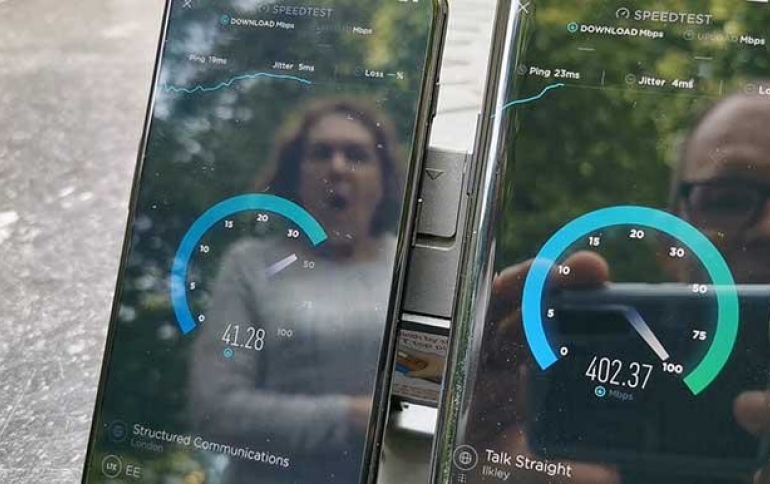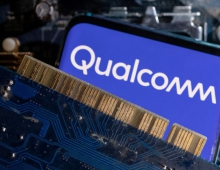
Qualcomm Forecasts Weaker Smartphone Demand on Q4
U.S. chipmaker Qualcomm gave a downbeat fourth-quarter sales forecast, indicating lingering weakness in smartphone demand while consumers wait for new 5G devices.
Fiscal fourth-quarter revenue will be $4.3 billion to $5.1 billion, the San Diego-based company said Wednesday in a statement. The forecast projects a decline in sales of 12% to 26% from the period a year earlier.
“We delivered another solid quarter operationally in the midst of slower demand for 4G devices as the market prepares for the global transition to 5G,” said Steve Mollenkopf, CEO of Qualcomm Incorporated. “Our 5G design wins have doubled over the last three months, leaving us extremely well positioned as 5G ramps in early calendar year 2020.”
Phone makers have largely given up on releasing new high-end phones based on current technology and consumers are delaying their purchases until the debut of fifth generation, or 5G, cellular services, Mollenkopf said. That’s making the near-term outlook for phones look “soft,” but only temporarily ahead of an expected surge in demand for new devices, he said.
Net income rose to $2.1 billion in the fiscal third quarter, from $1.2 billion a year earlier. Earnings were boosted by a one-time payment from Apple to settle their dispute and the resumption of royalty payments. Excluding certain items, profit was 80 cents, compared with an average estimate of 76 cents. Adjusted revenue declined to $4.9 billion from $5.6 billion a year earlier.
The company has reduced its prediction for the total size of the market this year by 100 million units.
The chipmaker is also still struggling to work through legal challenges that threaten its right to charge royalties on the technology for all phones used on modern networks, Qualcomm’s main source of profit.
Qualcomm’s licensing customers are continuing to pay licensing fees, Mollenkopf said. The chipmaker is still in dispute with Huawei Technologies Co. over the terms of a new agreement. The Chinese company had been making partial payments, but those will stop as they try to finalize a deal, he said.
While Qualcomm settled its broad-ranging legal dispute with Apple Inc. and the iPhone maker agreed to resume using its chips, the company lost a U.S. Federal Trade Commission case that alleged unfair business practices. U.S. District Judge Lucy Koh in San Jose, California, ordered Qualcomm to renegotiate patent licenses. Qualcomm is appealing the decision and seeking a stay on Koh’s decision so that it doesn’t have to immediately start those renegotiations.





















